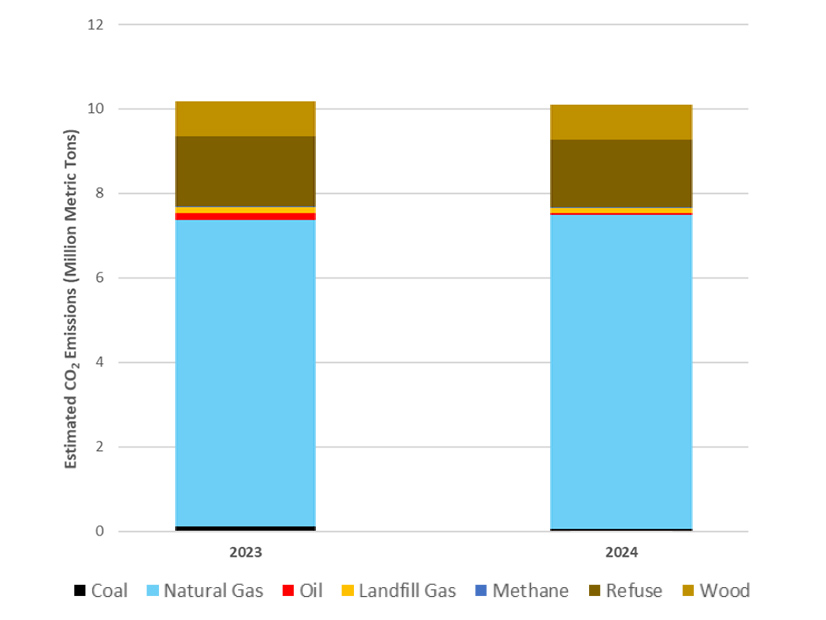Three state consumer advocates filed a complaint against PJM with FERC last month, alleging the RTO’s treatment of energy efficiency resources is unduly discriminatory and is not properly documented in its governing documents (EL24-118).
The complaint contends PJM treats EE resources differently from any other class by removing EE that clears in the Base Residual Auction (BRA) from the supply stack and adding those megawatts on top of the load forecast, a process known as the “addback.” By not counting cleared EE toward meeting the reliability requirement and instead increasing the amount of overall capacity procured by the amount of EE, the advocates argued the RTO is robbing consumers of the ability to lower their capacity costs through EE programs.
“This places unjustified upward pressure on prices, deprives the marketplace of the benefits of energy efficiency and foists unreasonable costs onto PJM consumers to pay for that energy efficiency out of the market,” the complaint said. It was jointly filed by the New Jersey Division of Rate Counsel, Maryland Office of People’s Counsel and Illinois Citizens Utility Board.
The advocates requested that FERC hold a technical conference with PJM, stakeholders and member states to reconsider how EE participates in the market.
The complaint also argued that a change as significant as the addback is not appropriate for PJM to make through its manuals and should have been filed as a tariff revision. Without FERC oversight of the change, the advocates argued there has been no ruling on whether it comports with past orders requiring EE participation in capacity markets.
“The addback should have been filed with the commission for review because it profoundly alters how an entire class of resources participates in the Reliability Pricing Model and affects capacity clearing prices,” the advocates wrote.
The advocates’ filing joins a complaint the Independent Market Monitor filed May 31 arguing that 10 EE providers had not demonstrated their resources met the BRA participation requirements and asked the commission to either bar those market participants from receiving BRA revenues for the 2024/25 delivery year or order PJM and the Monitor to open investigations to determine their eligibility (EL24-113). (See Monitor Alleges EE Resources Ineligible to Participate in PJM Capacity Market.)
The same day, PJM sent an email to EE market participants stating that it planned to delay approval of post-installation measurement and verification (PIMV) reports and defer capacity payments until the Monitor’s complaint is resolved. A second email said the PIMV reports continue to be under review, but the RTO did not plan to subject affected entities to capacity market deficiency charges and will continue payments to those companies, subject to refund depending on the outcome of the complaint. Replacement transactions will also be allowed for EE providers.
“Any capacity payment associated with [EE] resources for the 2024/2025 delivery year is not evidence of the validity of the PIMV report or represent evidence that PJM has or will approve the provider’s PIMV report,” the email states. “Additionally, PJM is continuing to review the sufficiency of the PIMV report during the pendency of the Market Monitor’s complaint, and any rejection of the PIMV report will result in capacity resource deficiency charges for any shortfall determined. Finally, PJM may further initiate audits of M&V plans and PIMV reports submitted by energy efficiency providers for the 2024/2025 delivery year, which could result in billing adjustments based on the outcome of such additional review.”
Four U.S. senators sent a letter to the commission in response to the Monitor’s complaint recommending a technical conference to consider the “proper role for energy efficiency in FERC-jurisdictional wholesale electric markets.”
The letter, signed by Sens. Angus King (I-Maine), Martin Heinrich (D-N.M.), Sheldon Whitehouse (D-R.I.) and Chris Van Hollen (D-Md.), said EE has the potential to shrink capacity procurements, delay or avoid transmission upgrades, and reduce consumer bills.
“FERC has, on several occasions, expressed support for energy efficiency participating in the wholesale markets. We are concerned, however, that in some regions, energy efficiency is not fully participating in wholesale markets, and other regions are considering rule changes that may negatively impact energy efficiency’s role in the future,” the senators wrote. “For instance, PJM recently announced that it was intending to suspend payments to energy efficiency providers until a complaint recently filed by the PJM Independent Market Monitor concerning energy efficiency is resolved. The status quo is becoming untenable.”
While many EE providers have spoken out against the Monitor’s complaint and PJM’s actions on PIMV reports throughout the stakeholder process, some expressed support to RTO Insider for the consumer advocates’ complaint on the grounds that removing the addback could allow EE to demonstrate its potential as a competitive resource. Those individuals requested anonymity to discuss the pending complaints the Monitor has filed against their companies.
In a protest to the Monitor’s complaint, attorneys representing Affirmed Energy said FERC’s Office of Enforcement has opened an investigation into the company based on a referral by the Monitor and makes identical claims to the Monitor’s complaint. It asked the commission to consider the overlap between the two in how it proceeds.
“The reality here is that both the IMM and the Office of Enforcement are seeking now to enforce their own policy preferences for rules that do not exist. Our position, in both the complaint case and the investigation, is that Affirmed Energy fully followed the market rules,” the company argued. “The IMM claims the conduct of Affirmed Energy and other sellers violates the tariff; the Office of Enforcement makes the same claim about Affirmed Energy. They are both wrong.”
The company said PJM has approved EE programs offered by Affirmed for the past 10 years, and the complaint follows stakeholders rejecting proposed changes to the EE market participation rules. (See “Stakeholders Reject Changes to EE Measurement, Verification,” PJM MRC/MC Briefs: March 20, 2024.)
It argued that the complaint and investigation both delve into “fundamental policy questions” that should instead be considered through a public proceeding such as a technical conference.

